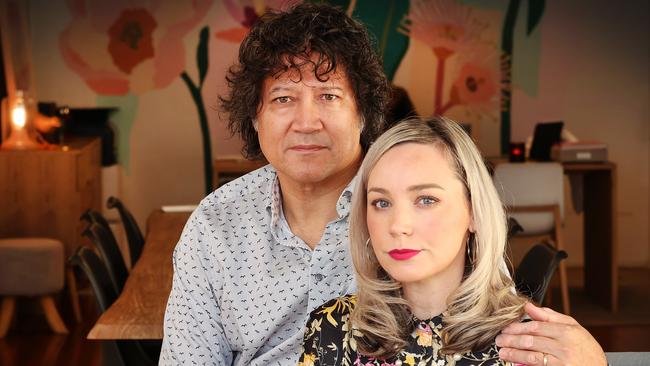Wellbeing of patients should come above protecting the clinic’s reputation, advocates say
Melbourne mum Angela Ceberano is among those calling on the regulator to name clinics where embryos were destroyed, saying: “You’re playing with people’s lives and their future family”.

Victoria
Don't miss out on the headlines from Victoria. Followed categories will be added to My News.
IVF patients have begged the industry watchdog to prioritise patients over clinics, after it refused to reveal who was responsible for destroying Victorians’ precious embryos.
The Victorian Assisted Reproductive Treatment Authority reported six serious incidents last financial year where two embryos and multiple eggs and sperm were irreparably damaged by one or more unnamed clinics.
Melbourne mum Angela Ceberano — who spent months believing her embryo had been destroyed because it was not viable in 2020, only for Monash IVF to later tell her it was in storage — said the experience was “traumatic” and begged the regulator to name clinics.
“You’re playing with people’s lives and their future family,” she said.
“People have a right to make an informed decision.
“Mistakes are going to happen, but I think it’s about what steps are those clinics now taking to avoid that in the future.”
Ms Ceberano welcomed a baby boy after eight years in June and said she was “very grateful for No. 1 [IVF clinic]” and IVF.
She said she spoke out – not to scare people – but so they could have the information she wished she had at the beginning.
“There’s no way we would have been able to have our little one without it,” she said.
Fertility Collective founder and Global Fertility Advocate winner Ceci Jeffries said the wellbeing of patients – who put in such an “emotional, physical and financial effort” to have a baby – had “to come above protecting the clinic’s reputation”.
“Fertility patients are extremely vulnerable and the last thing they need is regulators making it difficult for them to fully understand who they are engaging for the most important service of their life,” she said.
“IVF clinics are well known for promoting their ‘success rates’, but how are patients supposed to make an informed decision on who is the best clinic for them if they don’t have all the information?”
The heartbreaking cases detailed in VARTA’s annual report included a viable embryo that was “inadvertently discarded”, 10 eggs that were contaminated with bacteria and the loss of five sperm vials due to a “delay in replacing equipment”.
VARTA would not say which clinic was responsible for each case and, when asked repeatedly if there was a reasonable explanation as to why they could not, or should not, name them, would not answer the question directly.
VARTA board member Professor Fiona Kelly said “adverse incidents are devastating for patients”.
“VARTA is committed to working with clinicians, clinics and patients to have a safety culture that enhances patient outcomes,” she said.
“In the last year there was a decrease in the number of adverse incidents reported by clinics.”
A Victorian Government spokeswoman said naming clinics was “a decision for VARTA”.




